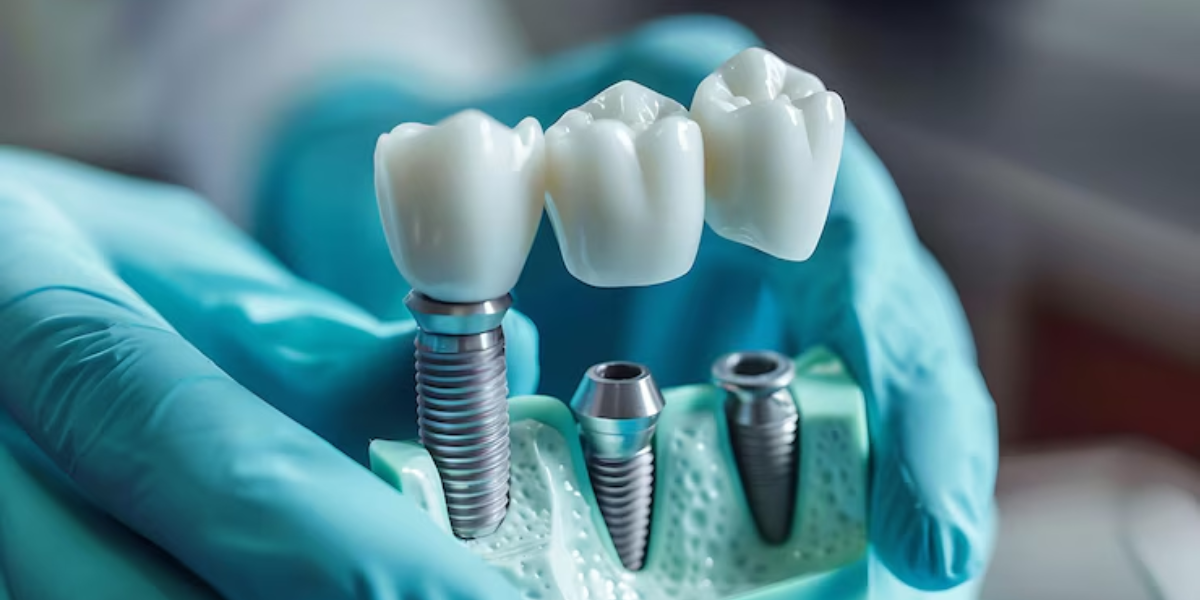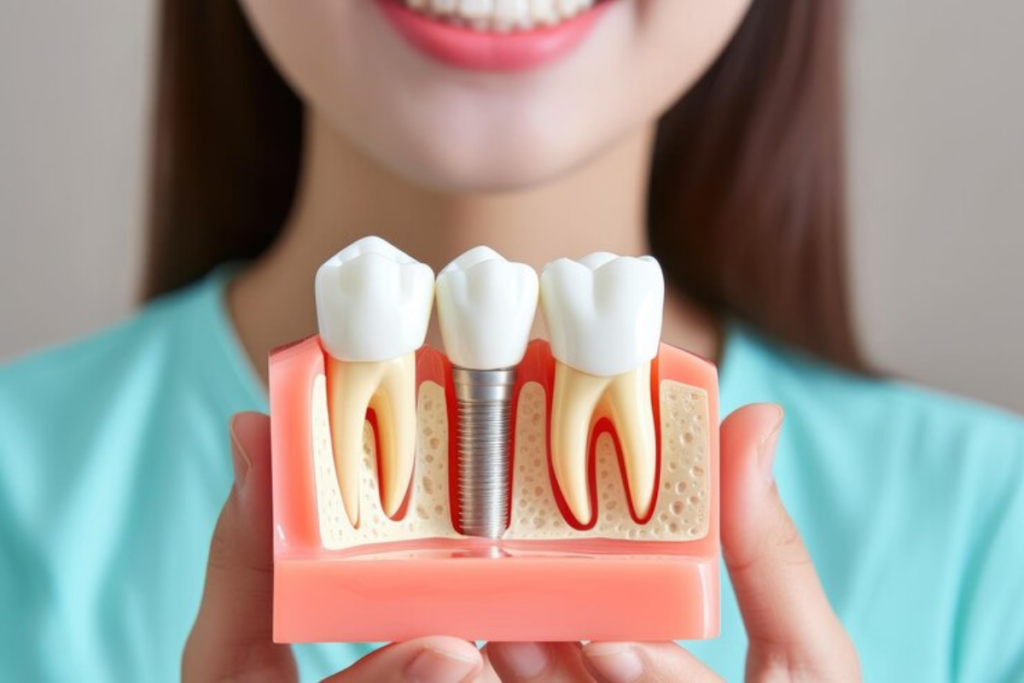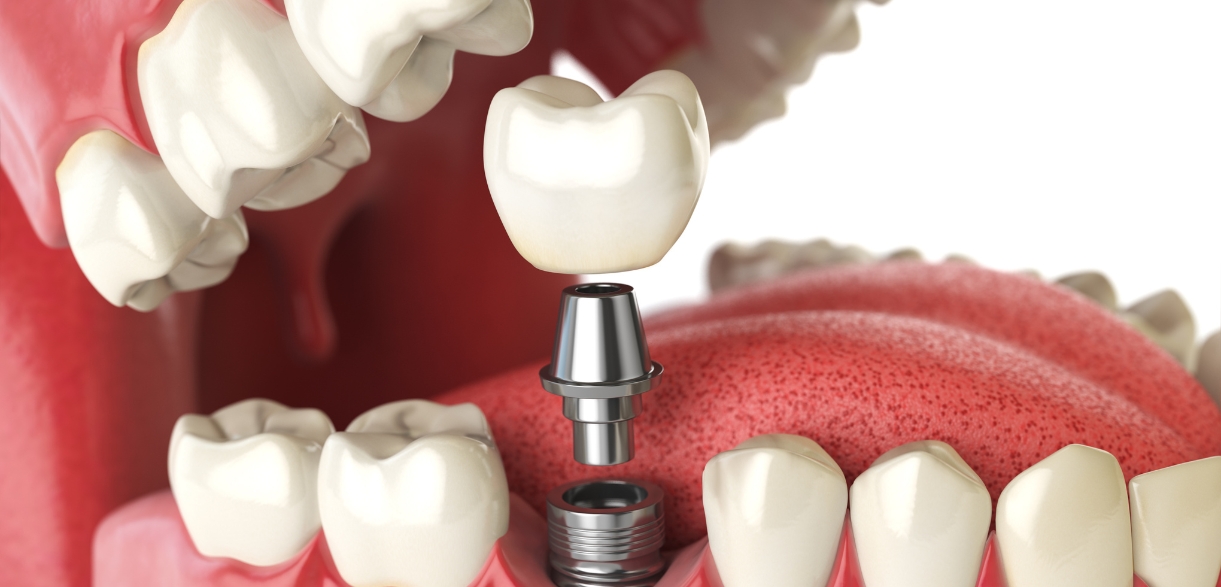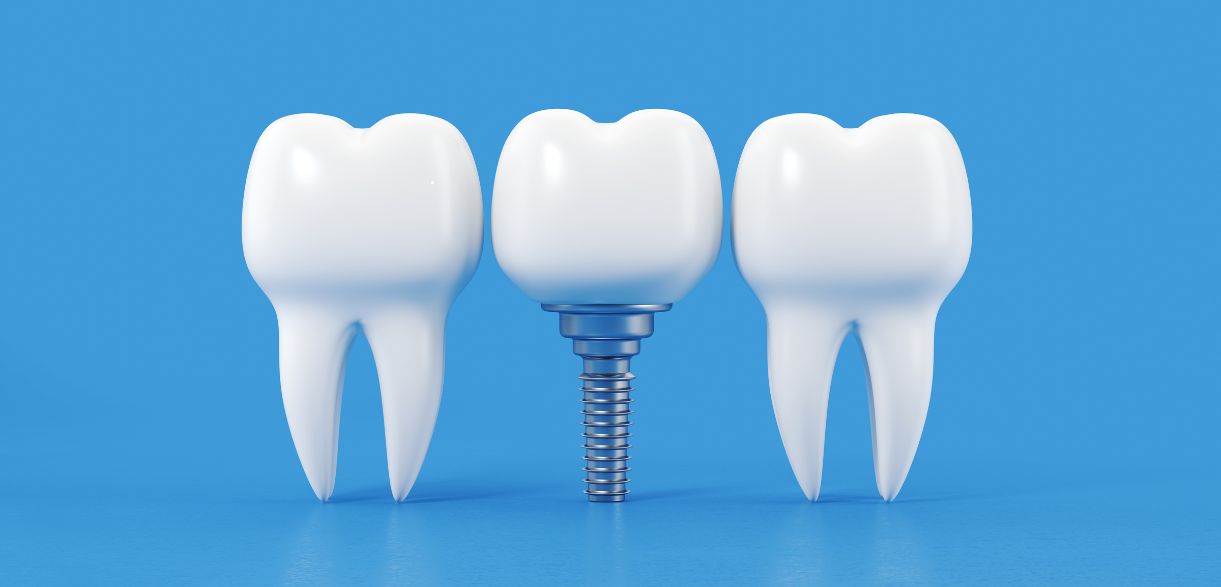New Patients Welcome!

Dental implants are a popular and long-lasting solution for replacing missing teeth. Designed to mimic the look and function of natural teeth, they offer durability, stability, and comfort. However, the longevity of dental implants depends significantly on proper care and maintenance. With good oral hygiene practices and regular dental check-ups, your dental implants can last a lifetime. In this guide, we’ll walk you through the best practices for caring for your dental implants, ensuring their long-term success.
Why Proper Care is Crucial for Dental Implants
While dental implants are made from highly durable materials like titanium, they are not immune to potential issues. The success of your dental implant depends on how well it integrates with your jawbone, known as osseointegration. Poor oral hygiene and neglect can lead to complications such as infections or bone loss, which can ultimately cause implant failure.
Some key reasons why proper care is essential include:
- Prevention of Peri-Implantitis: This is an inflammatory condition affecting the gum and bone around the implant, leading to bone loss and, in severe cases, implant failure.
- Maintaining Oral Health: Healthy gums and surrounding teeth are crucial for supporting your dental implants. Gum disease or decay in adjacent teeth can compromise implant stability.
- Prolonging Implant Longevity: With proper care, dental implants can last 20 years or more, providing a permanent solution for missing teeth.

1. Maintain Excellent Oral Hygiene
Dental implants require the same if not more, attention as natural teeth. Plaque and tartar can build up around the implant, leading to gum inflammation and infection.
Steps for Effective Oral Hygiene:
- Brush Twice Daily: Use a soft-bristle toothbrush and non-abrasive toothpaste to clean your teeth, implants, and gums thoroughly. Electric toothbrushes are also effective at removing plaque.
- Floss Daily: Flossing helps remove food particles and plaque from between the teeth and around the implant. Consider using implant-safe floss or a water flosser to avoid damaging the implant.
- Use Antimicrobial Mouthwash: Rinsing with an antimicrobial mouthwash can reduce harmful bacteria in your mouth, keeping the area around your implants clean and healthy.
These practices will keep your dental implants free from plaque buildup and help maintain healthy gums, essential for the longevity of your implants.
2. Regular Dental Check-Ups Are a Must
Routine dental visits are key to ensuring the long-term success of your dental implants. Professional cleanings help remove any plaque or tartar that may have built up in hard-to-reach areas, while your dentist can monitor the condition of your implants.
What Happens During Dental Check-Ups:
- Implant Assessment: Your dentist will check the integrity of the implant, ensure the surrounding gums are healthy, and look for any signs of infection or bone loss.
- X-rays: X-rays allow your dentist to monitor the bone level around the implant and ensure that the implant is securely integrated with the bone.
- Cleaning: A dental hygienist will use special tools to clean around the implants and remove any hard deposits of tartar that daily brushing and flossing may miss.
Regular dental visits every six months (or as recommended by your dentist) will help catch any potential problems early, reducing the risk of complications.
3. Quit Smoking for Better Implant Health
Smoking is one of the most significant risk factors for dental implant failure. The toxins in tobacco can slow down the healing process, reduce blood flow to the gums, and increase the likelihood of infection around the implant.
How Smoking Impacts Your Dental Implants:
- Delayed Healing: Smoking reduces the body’s ability to heal after implant surgery, which can prevent the implant from integrating with the jawbone properly.
- Increased Risk of Infection: Smokers are more susceptible to peri-implantitis, which can lead to bone loss and implant failure.
- Weakened Immune System: Smoking weakens your immune system, making it harder for your body to fight off oral infections.
If you smoke, quitting can drastically improve the chances of your dental implants lasting for the long term. Consult with your dentist or doctor for support in quitting smoking.
4. Eat a Balanced Diet for Stronger Implants
The food you eat plays a crucial role in maintaining the health of your dental implants. A diet rich in vitamins and minerals, particularly calcium and vitamin D, can help support healthy bones and gums, which are essential for dental implant longevity.
Best Foods for Implant Health:
- Calcium-Rich Foods: Dairy products, leafy greens, and fortified foods are excellent sources of calcium, which strengthens the bones around your implant.
- Vitamin D-Rich Foods: Vitamin D is essential for calcium absorption, so include foods like fatty fish, eggs, and fortified cereals in your diet.
- Lean Proteins: Foods like chicken, turkey, and legumes help repair tissues and keep your gums healthy.
Foods to Avoid:
- Hard Foods: Avoid foods that can crack or chip your dental crown, such as hard candies, ice, or nuts.
- Sugary and Sticky Foods: These can promote plaque buildup, which increases the risk of gum disease and peri-implantitis.
Maintaining a healthy, balanced diet will promote bone health and keep your gums in good condition, both of which are vital for supporting your dental implants.
5. Use a Nightguard If You Grind Your Teeth
Bruxism, or teeth grinding, is a common condition that can damage your dental implants. The excessive pressure from grinding can cause the implant to loosen or affect the dental crown attached to the implant.
How a Nightguard Protects Your Implants:
- Absorbs Pressure: A custom-made nightguard is designed to protect your teeth and implants by absorbing the pressure caused by grinding.
- Prevents Damage: The nightguard acts as a barrier, reducing the risk of chipping or cracking the dental crown on the implant.
- Comfortable to Wear: Nightguards are made to fit snugly over your teeth, ensuring a comfortable night’s sleep while protecting your dental implants.
If you suspect that you grind your teeth, consult your dentist. A custom-fitted nightguard can help protect your dental implants and natural teeth from the harmful effects of bruxism.
6. Monitor for Signs of Complications
While dental implants are designed to last a long time, it’s essential to monitor your mouth for any signs of problems. Early detection of issues such as infection, gum disease, or implant loosening can prevent more serious complications.
Signs to Watch For:
- Pain or Discomfort: Some discomfort after implant surgery is normal, but persistent or worsening pain could indicate an infection or other complication.
- Swelling or Redness: If you notice swelling, redness, or bleeding around your implant, it could be a sign of peri-implantitis or gum disease.
- Loose Implant: If the implant feels loose or the attached crown shifts, it’s crucial to see your dentist immediately.
By paying attention to these signs and seeking prompt treatment, you can prevent small problems from turning into significant issues that could jeopardize your dental implants.
7. Choose the Right Tools for Implant Care
Using the proper tools to clean your dental implants will ensure they stay in excellent condition for the long term. Ordinary toothbrushes and floss may not be as effective in cleaning around implants, so consider using specialized tools designed for implant care.
Recommended Tools for Implant Cleaning:
- Soft-Bristle Toothbrush: A soft-bristle toothbrush, whether manual or electric, is gentle on the gums and effective at cleaning around implants without causing irritation.
- Interdental Brushes: These small, thin brushes are perfect for cleaning the spaces between teeth and around the implant post.
- Water Flosser: A water flosser uses a gentle stream of water to clean around your implants, making it an excellent option for those who find traditional flossing difficult.
By using the right tools, you’ll be able to maintain your dental implants effectively, keeping your gums healthy and free from plaque buildup.
8. Stay Hydrated for Better Oral Health
Staying hydrated is important not only for overall health but also for oral health. Drinking plenty of water helps wash away food particles and bacteria that can lead to plaque and tartar buildup.
Benefits of Staying Hydrated:
- Promotes Saliva Production: Saliva helps protect your mouth by neutralizing acids and washing away bacteria, so staying hydrated encourages saliva production.
- Keeps Gums Healthy: Water helps flush out food particles from between your teeth and around your implants, reducing the risk of infection or gum disease.
- Prevents Dry Mouth: A dry mouth can lead to an increase in bacteria, so drinking water regularly helps maintain a moist and healthy environment for your implants.
Make sure to drink plenty of water throughout the day to support the health of your dental implants and gums.
Caring for your dental implants is essential for ensuring their longevity and protecting your oral health. By practicing good oral hygiene, visiting your dentist regularly, maintaining a healthy diet, and using the right cleaning tools, you can keep your implants in excellent condition for many years. Early detection of any issues and avoiding harmful habits like smoking will further contribute to the success of your dental implants.
With the right care, your dental implants will continue to provide you with a confident smile and the functionality of natural teeth for a lifetime.





